
Contractor Lic: 372488C
0434 788 788
Call Craig Directly
Illawarra's Most Trusted Solar & Battery Provider
Family Owned and Local
Solar Power for homeowners in the Illawarra NSW
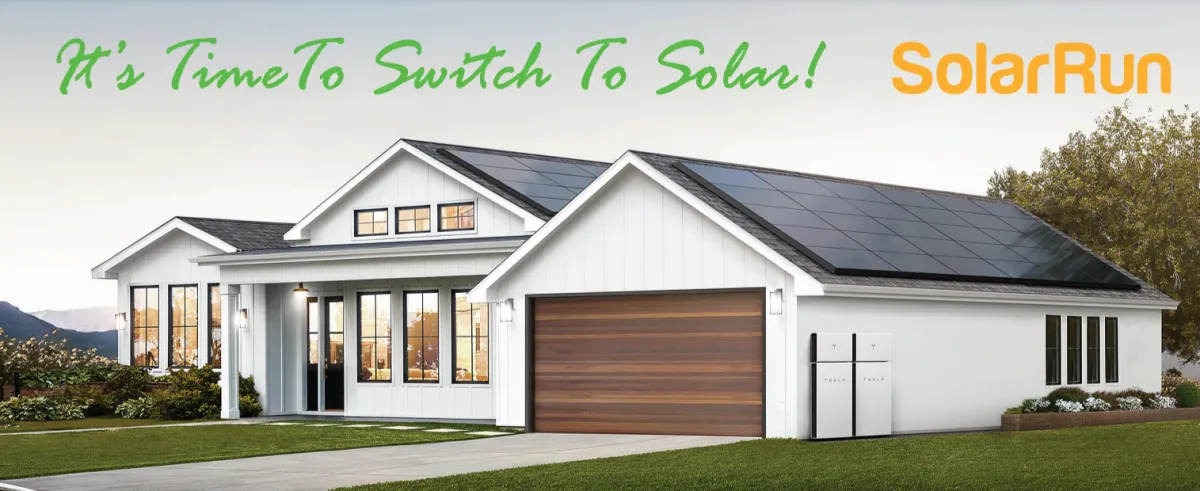
Whether if you’re in Wollongong, Shellharbour or through to Kiama regions, our ample sunshine and environmentally conscious culture makes the Illawarra region a haven for renewable energy.
Buying solar panels on the Illawarra can be an overwhelming process due to the sheer number of solar energy solutions available on the market today.
SolarRun Illawarra provides Australian homeowners with the power to produce, store, and consume their own energy. As an industry leader of renewable energy, we are setting the standards.
We strive to provide the highest quality service, with the highest quality products. Solar power is a long-term investment and it is vital that you choose the right product for your specific needs.
There Has Never Been A Better Time To Make The Switch To Solar
Inquire Now. Get a free quote and speak to our friendly team today!
Strategies to solve your energy problems, obligation free.
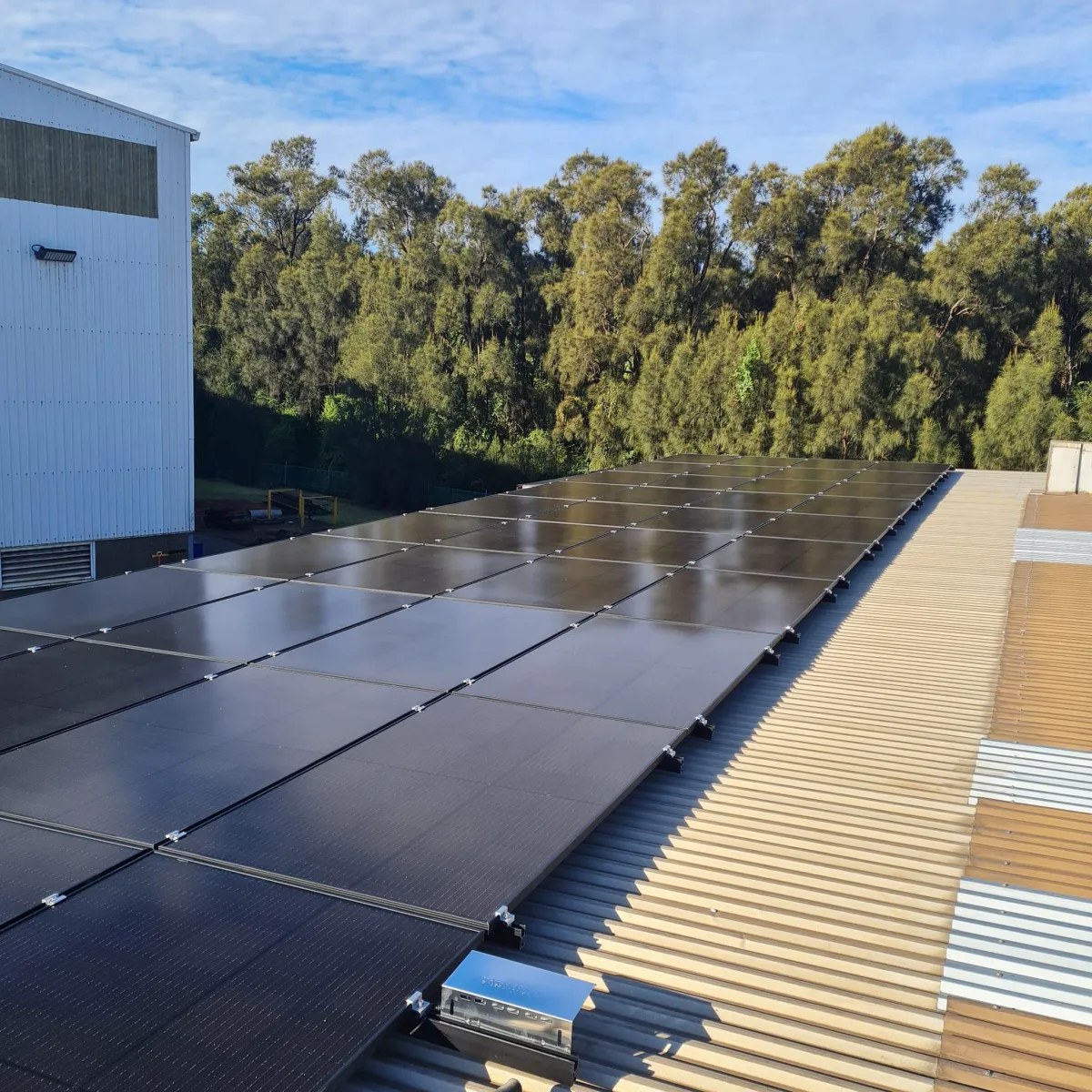
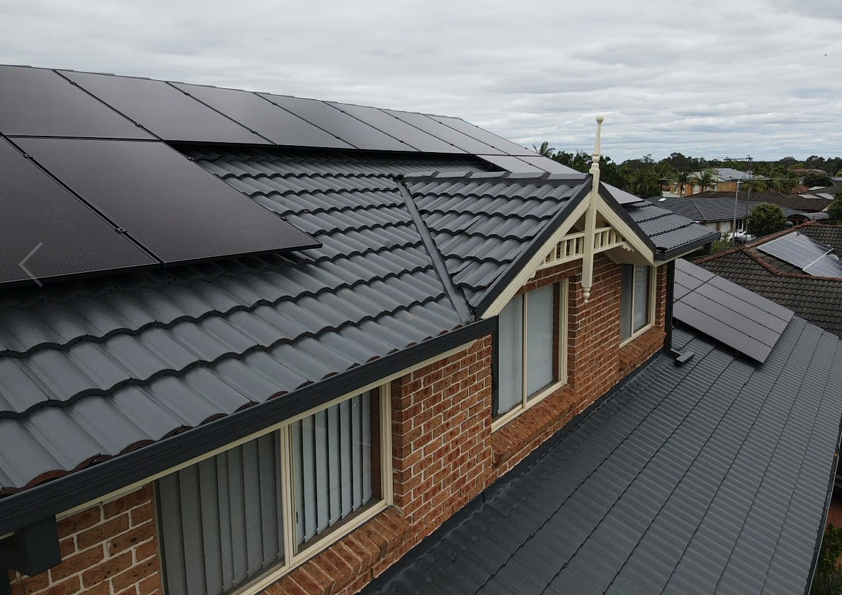
Do you understand the
JARGON in your energy bill?
Check out our free energy bill breakdown as we walk you through the most important parts of your energy bill you MUST know!
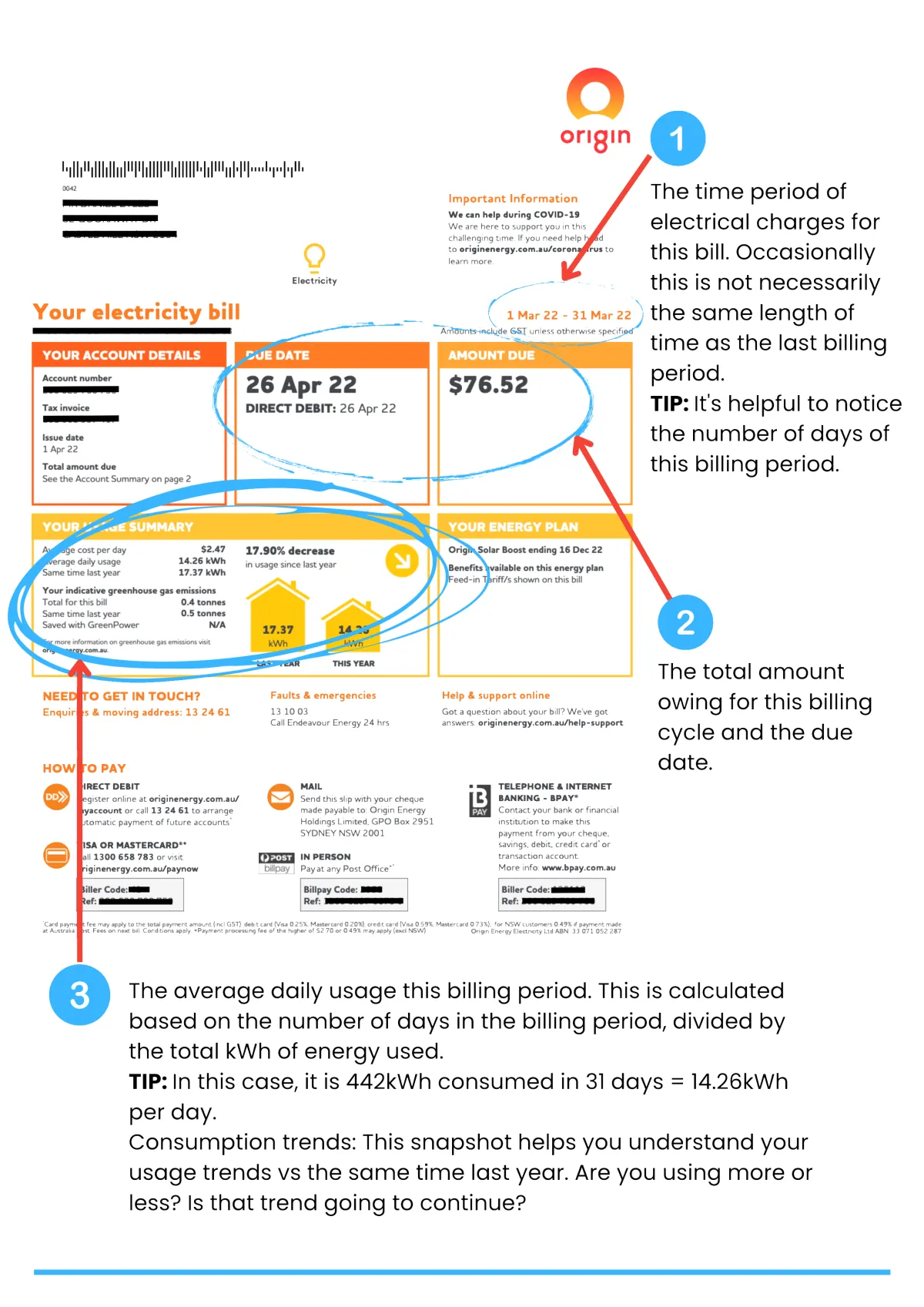
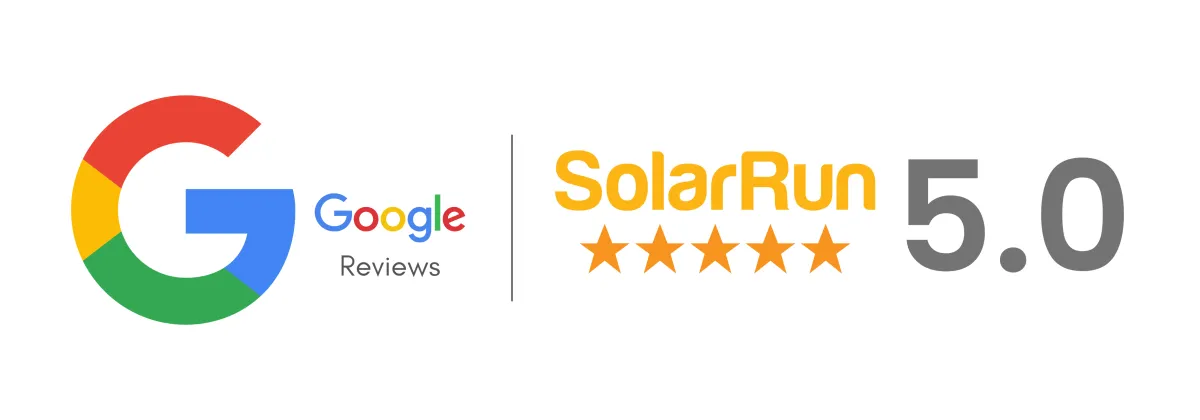

Craig's team did excellent job. He made sure all the questions were answered in addition to top notch installation.
No shortcuts taken, very professional. Craig even offered to collect spare tiles for me as I struggled to find back up tiles for the roof. That is next level customer service beyond and above expectations.
On the installation day Craig drove all the way here to Goulburn to make sure everything is done right. Mick's installation team did great job, going extra mile and working long hours with some unexpected work to make sure everything works well. Now in April, my 10kw system is producing up to 28kwh per day which is great. I highly recommend Craig's services to make sure your solar system performs up to its potential. Thank you Craig, Mick and the rest of the team for fantastic efforts! Couldn't be happier with the outcome. Cheers!👌🏻👍🏻🙏🏻😊

We have had our solar installed for 6 months and have enjoyed a heated pool for free! The guys are solar run were amazing to deal with.
Craig had great knowledge and was able to supply us with exactly what we needed. Very happy with the result
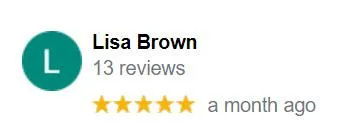
Craig and his team have been exceptional to deal with. Quality product and fast friendly efficient service. Craig was very knowledgeable and happy to answer all of our questions.
A genuine man who is looking to help anyone wanting solar panels without being ripped off.
I will definitely be recommending his company to our family and friends Thanks Craig

Craig and his team from Solar Run Illawarra installed my solar 6 months ago - I promised I would not write a review until 6 months had passed so here it is. The system has done all that Craig promised and more My first two bills were in credit as he promised - He advised to use the sun power all black panels on our roof- I’m glad we listened to him- they look exceptional , modern and classy - my neighbours are in envy - how good they look and how well they perform. Craig and his team are the real deal. Hand on heart I will continue to recommend them as I have seen nothing but great after sales support and financial results.

Having Craig and his team at Solarrun install my solar power system is one of the best decisions I have ever made. Solarrun made the whole process easy, their customer service and quality of workmanship is excellent. Craig and his team will go above and beyond in delivering the best solution for your requirements. Highly recommended

Solar was always a bit confusing for us but Craig and his team did a great job in explaining the whole process from start to finish.
They completed the work quickly and before we knew it we were part of the solar community.
We love seeing how much we are generating and the savings on the app also.

Craig and the team at Solar run have been nothing short of amazing. The customer service and communication was excellent throughout the process.
There was continuous consultation about the layout of the panels to ensure maximum productivity, whilst maintaining the desired visual appeal.
The after installation support has also been fantastic, to help us monitor the new system and make refinements to our previous habits using electricity.
We help Families, companies, Farmers, Developers &
People Just like you...
Matt | Bulli NSW
Matt has referred over 7 clients to the SolarRun family.
Viron | Primbee NSW
Very Happy with the results. Viron has referred 3 new clients to SolarRun.
Noel | Figtree NSW
Noel referred 3 new clients to the SolarRun family.

Craig Whitley | CEO of SolarRun Illawarra
After Leaving school Craig embarked on an electrical apprenticeship with Prospect Electricity then moved on to run a successful electrical contracting business including residential work to head contractor on major government projects.
While raising a family of 3 children he realised how much wasted money was spent over those years on power bills. Frustrated, he decided to research on better solutions and educated himself about solar power systems for home use.
Craig took the challenge and made it his mission to help other Australian families and homeowners in the same position to eliminate their power bills and use that wasted money on other things that are important to them.
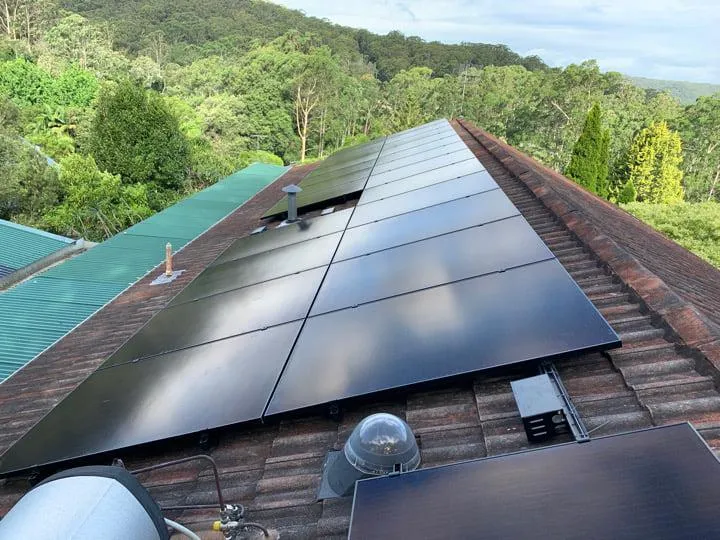
FIVE STEP SOLAR PROCESS
OUR INSTALLATION PROCESS :
We start all projects with a site survey to ensure we are specifying the optimal panels, inverter and battery storage system (if chosen) for the job. Our system designers will detail everything required down to the last bolt so that when we install your solar system it’s done efficiently, and done right.
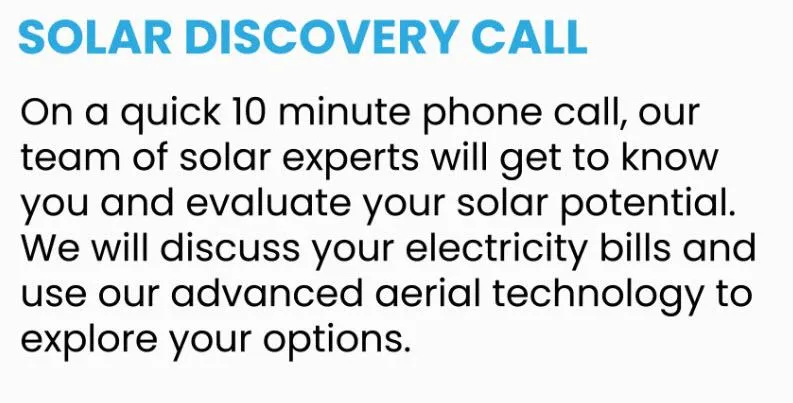
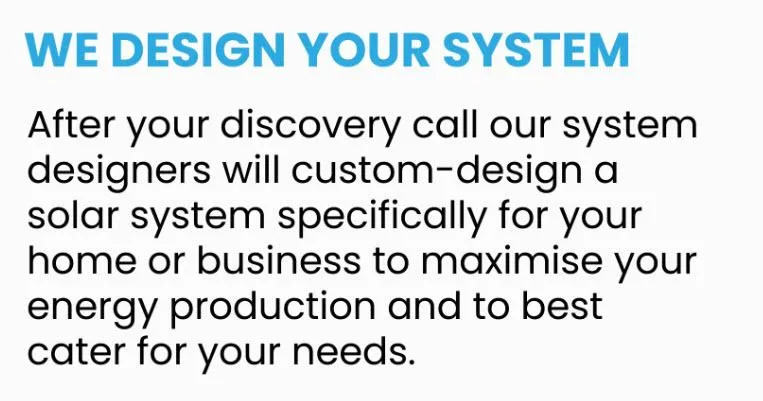
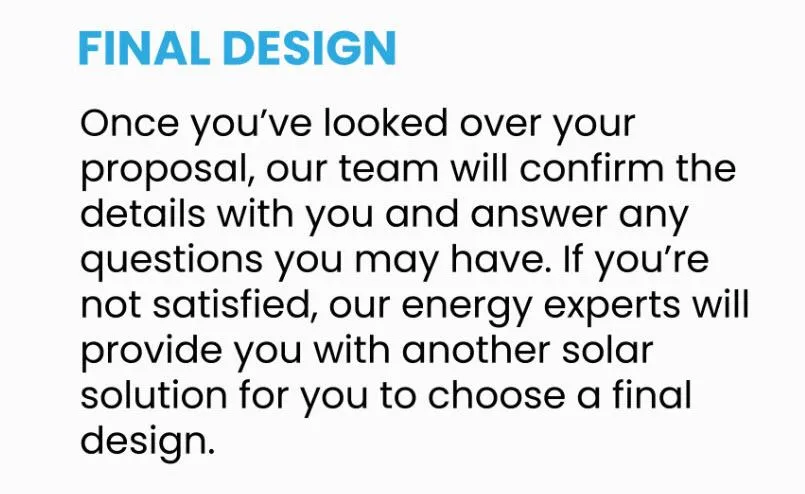
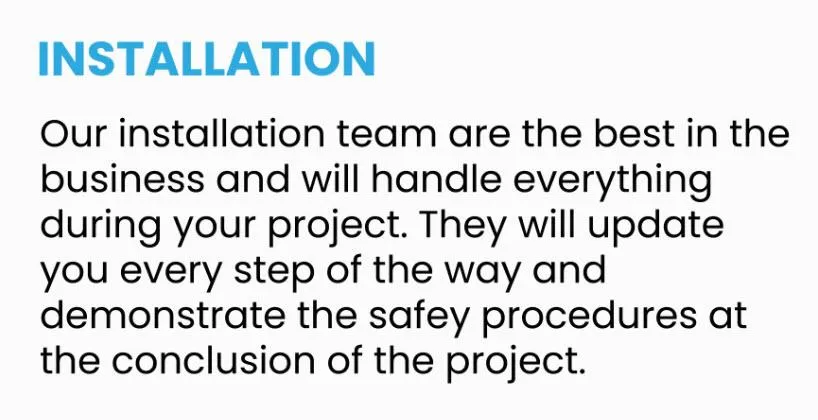
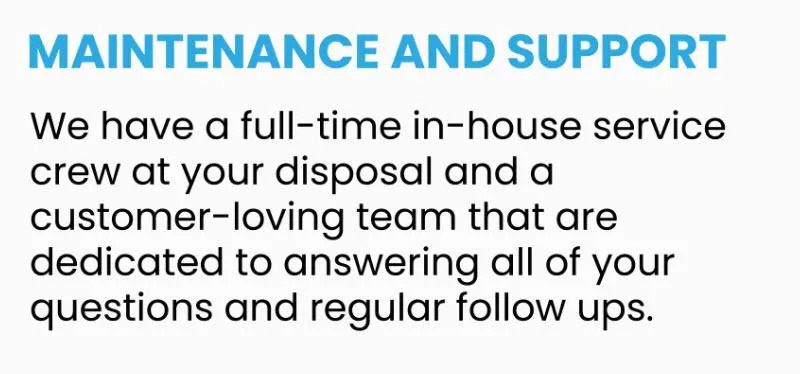
Free Gift!
Solar For Homeowners
The Complete Guide
If you're a homeowner considering making the switch to solar, this book is for you. You don't need to understand the technical terms or have any background in solar understand the many benefits of solar for your home.
Use this book as your guide to understand the most important things you should keep an eye on before you choose a solar system.
Feel confident when buying solar, ask the right questions, learn what to do to ensure your savings are maximised for the long run.
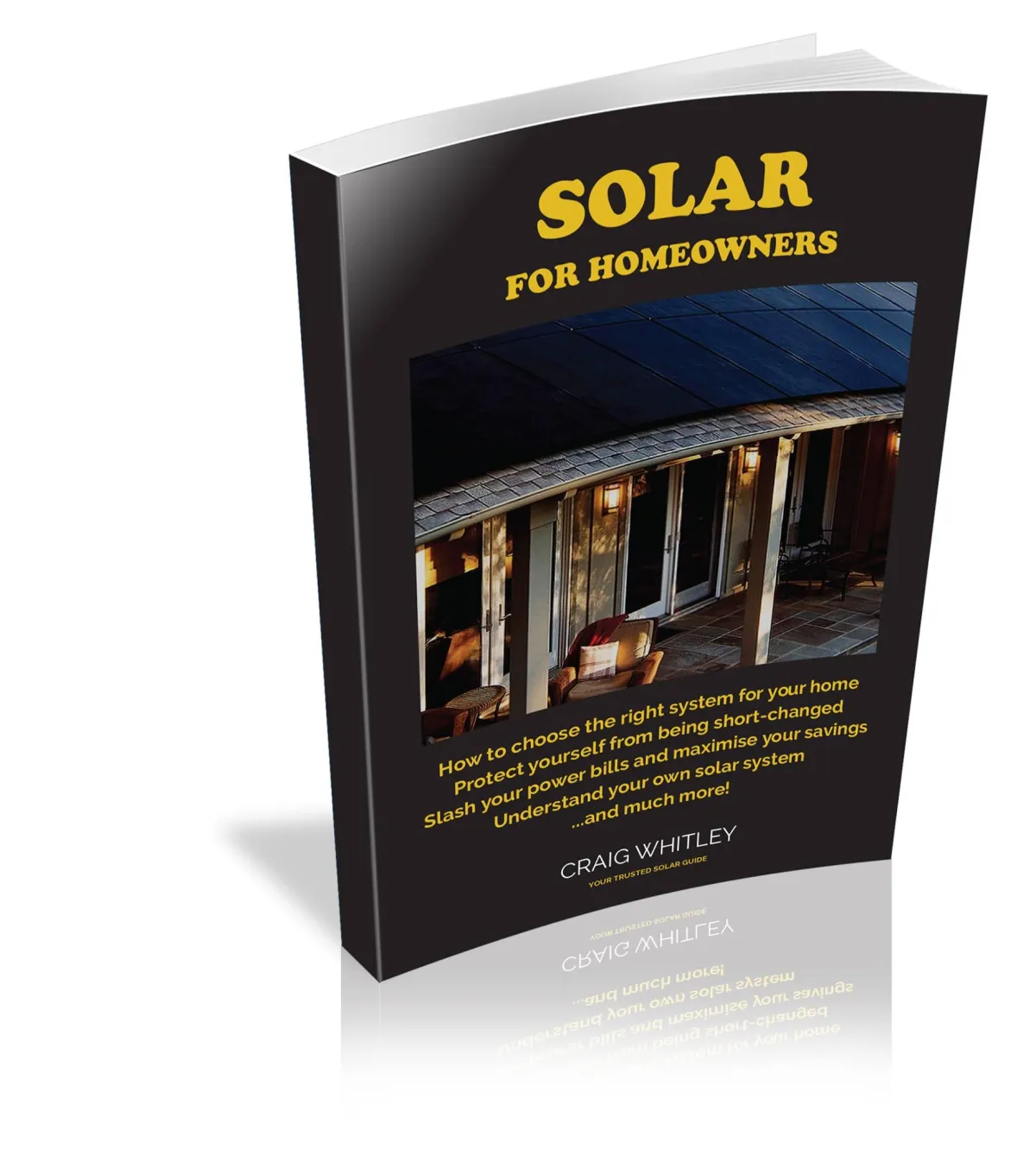
FAQ'S
What is a feed-in tariff?
A feed-in tariff for your solar system is the rate your electricity retailer will pay you for any excess electricity produced by your solar system that is fed back into the electricity grid.
What are the benefits of going solar?
Solar power can save you money: every kilowatt of electricity generated by your solar system reduces the cost of your energy bill.
Environmental benefits: solar power reduces the potential for global warming and creates sustainable, clean energy.
Future proof your home: home buyers are increasingly recognising the value in buying a home with solar capability and this is likely to increase as electric cars become common on our streets.
Battery technology becoming more affordable: lithium-ion batteries can store solar power during the day for use at night making solar solutions even more advantageous.
Why choose solar energy?
The cost of installing solar solutions is coming down while at the same time the efficiency of the technology is always improving. In most cases, a solar solution installed today will have paid off your initial investment in about five to six years, through savings in power bills. As electric vehicles become more common on the streets, generating free electricity in your home to charge your car could become an added benefit in the future. Of course both of these steps help reduce greenhouse gas emissions and our dependence on fossil fuel - the ultimate goal for us all!
What are solar inverters?
Solar inverters are an essential component of a solar photovoltaic (PV) system. They are what converts the direct current (DC) output of solar panels (the energy collected from the sun) into alternating current (AC) electricity, which is what is used by the appliances in your home.
Inverters can be monitored via a computer program or device app to check energy generation, consumption and correct operation of the system.
Several types of inverters are suitable for home systems.
Is it worth investing in solar if I am at work all day?
Yes! With the price of solar systems decreasing and the increase in money the energy companies will pay you for what you don't use, now is the time to invest in your energy future. There are two ways that a professional solar system can save you money: first by providing free energy for you to use to run your appliances when you are home and the sun is shining; and, secondly, by enabling you to sell excess power back to the energy companies when you are producing more than you need or when you are not home.
How do I clean my solar panels?
Solar panels do need to be cleaned once or twice a year to keep them working at optimal levels. Dust and debris allowed to accumulate on the panels will reduce the amount of light the solar panels can absorb. Use soapy water and a soft brush or sponge to wipe the panels down. If it is not safe for you to do this yourself, contact us about organising one of our team to help you out.
Should I add a battery to my solar system?
As a part of our free site assessment, our team will determine whether a battery is the best option for you. Solar batteries allow you to use your own solar-generated energy to power your home at night, reduce your dependence on fossil fuels, and protect you against power outages. Even if a battery is not the right decision for you today, our solar energy installations are future-proofed and ready for the addition of a battery when you are ready in the future.
What are solar batteries?
Rechargeable solar batteries store the ‘excess’ electricity generated from a panel array, boosting energy capacity and making power available for use at night time or on cloudy days.
Recent design improvements and price drops in lithium-ion batteries have made solar storage more viable than ever before.
Assess your energy needs before investing in a battery or batteries. There’s no point buying more capacity than you can use — surplus electricity should instead be fed into the grid for a profit.
If all the appliances in your home are electrical, they can be powered by solar.
Battery storage systems are a serious safety risk if incorrectly installed and may have implications for insurance coverage, so when choosing a solar solution make sure to use a reputable installer.

